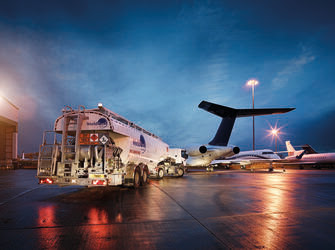There is no doubt that sustainable aviation fuel, commonly known as 'SAF; is a key ingredient in the future of the entire aviation industry. SAF are three little letters that are heavily featured in all the major airlines' sustainability, annual or ecological reports, yet there are big differences in how that fuel gets made.
Sustainable aviation fuel comes from various sources, mainly plant or animal materials including cooking oil and other non-palm waste oils from animals or plants; solid waste from homes and businesses, such as packaging, paper, textiles, and food scraps that would otherwise go into the ground at landfill sites or get burned incineration. Forestry waste, such as waste wood; and energy crops, including fast-growing plants and algae, can also be used to produce the SAF that every airline wants in order to fulfil the expectations of shareholders and customers.
Some of the big players in this growing and somewhat lucrative industry have different methods:
Neste - Neste is one of the largest producers of renewable diesel and SAF in the world and produces SAF by refining renewable diesel and using a hydrogenation process to convert it into SAF.
World Fuel Services /World Kinetic - World Energy is a major SAF player in the U.S. and has supplied SAF to some of the nation's biggest airlines including JetBlue, Delta and United.
Alder Fuels - Alder Fuels is developing a process to produce SAF from woody biomass.
Air bp - Air bp has taken a portfolio approach by arranging deals with a number of third-party producers and investing in third-party production facilities. Some of these suppliers make SAF from household waste and forestry waste.
SkyNRG - SkyNRG is a leading supplier of SAF in Europe and has supplied SAF to airlines such as KLM Royal Dutch Airlines and Finnair. SkyNRG produces its sustainable aviation fuel using a variety of feedstocks, including used cooking oil, waste animal fat, and residual streams from the forestry industry. The company has set out to build a self-sustaining network of regional supply chains, known as ‘Direct Supply.
OXCCU’s SAF is called OXEFUEL, created by combining captured carbon dioxide and renewably sourced green hydrogen using a novel iron-based catalyst. This innovative process results in a more cost-effective and decarbonised alternative to fossil-based Jet A fuel for commercial air travel. OXEFUEL has been independently tested and verified in collaboration with Imperial College London, finding that the novel process reduces the capital cost by 50%.
Their technology not only addresses the urgent need to reduce carbon emissions in the aviation sector but also offers a commercially viable solution that aligns with the global sustainability agenda. The OXCCU process has a very low energy input and high selectivity and can be easily programmed to produce high-value jet fuel and other products
OXCCU, a spinout from Oxford University has revolutionised the process of creating sustainable, economically efficient, and scalable Jet fuel in a groundbreaking one-step process.
Co-Founder and CEO, Andrew Symes said: "At OXCCU, we've revolutionised the process of creating sustainable jet fuel from CO2 with our one-step process. Most people making SAF from CO2 today use a two-step process, which is costly. In our one-step conversion process, CO₂ can be transformed directly into jet-fuel range hydrocarbons, resulting in OXEFUEL—a cost-effective and decarbonised alternative to fossil-based jet fuel for commercial airlines.
This is where we can make a huge dent in aviation emissions and enable future generations to fly, hence it’s crucial for airlines to direct their efforts towards transitioning to SAF, in addition to improving fuel efficiency."




